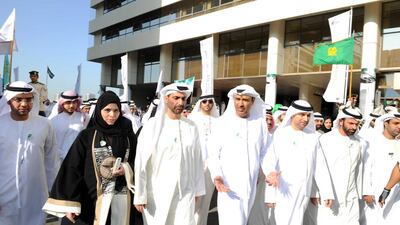Global oil demand can be reduced by up to 2.7 million barrels per day within four months if advanced economies adopt certain guidelines, especially in the transport sector, to support the crude market, which has been hit hard by the Russia-Ukraine crisis, the International Energy Agency said.
If fully carried out in advanced economies, the measures recommended by the IEA’s report, titled '10-Point Plan to Cut Oil Use', would lower oil demand by a figure equal to the amount required by all cars in China, it said.
“This would significantly reduce potential strains at a time when a large amount of Russian supplies may no longer reach the market and the peak demand season of July and August is approaching. The measures would have an even greater effect if adopted in part or in full in emerging economies as well,” the IEA said.
“These efforts would reduce the price pain being felt by consumers around the world, lessen the economic damage, shrink Russia’s hydrocarbon revenues and help move oil demand towards a more sustainable pathway.”
The oil market has been in turmoil since Russia began its military offensive in Ukraine.
Brent, the global benchmark for two thirds of the world's oil, rose to a 14-year high of slightly under $140 a barrel earlier this month while West Texas Intermediate, the gauge that tracks US crude, also rallied above $120 a barrel.
Oil pared back its gains amid talks between Russia and Ukraine, the possibility of an Iran nuclear deal and concerns of demand growth in China amid rising Covid-19 cases.
However, prices have begun to inch up again.
Brent was trading more than 1.15 per cent per cent higher at $107.87 at 2.30pm UAE time on Friday while West Texas Intermediate, the gauge that tracks US crude, was up 1.29 per cent at $104.31 a barrel.
“Oil prices are rising once again today, with Brent and WTI now back above $100,” said Craig Erlam, senior market analyst at Oanda.
“It feels like a real setback just as things appeared to be heading in the right direction which had allowed oil prices to fall considerably from the highs.
“Also contributing to the uplift is IEA's assessment of the oil market, with Russian exports seen declining by around three million barrels per day. That is far more than the lost demand growth as a result of high prices, which further tightens the market.”
Earlier this month, the IEA revised down its forecast for world oil demand by 1.3 million bpd for April to December 2022 due to the Russia-Ukraine conflict, resulting in growth slowing by 950,000 bpd for 2022 on average.
Total demand is now projected at 99.7 million bpd in 2022, an increase of 2.1 million bpd from 2021.
Since the majority of oil demand comes from transport, the IEA's new 10-point plan urges governments and people to adopt alternate ways of working and commuting.
The short-term actions it proposes include reducing the amount of oil consumed by cars through lower speed limits, working from home, occasional limits on car access to city centres, cheaper public transport, more car sharing, greater use of high-speed rail and online meetings instead of air travel.
“As a result of Russia’s appalling aggression against Ukraine, the world may well be facing its biggest oil supply shock in decades, with huge implications for our economies and societies,” said IEA executive director Fatih Birol.
“IEA member countries have already stepped in to support the global economy with an initial release of millions of barrels of emergency oil stocks, but we can also take action on demand to avoid the risk of a crippling oil crunch.”
The carrying out of the measures will depend on each country’s own circumstances — in terms of their energy markets, transport infrastructure, social and political dynamics and other aspects.







“Government regulations and mandates have proven to be very effective for successfully implementing these measures in various countries and cities, combined with public information and awareness campaigns,” the agency said.
It also stressed that reducing oil use must not remain a “temporary measure".
“Sustained reductions are important not only to improve countries’ energy security but also to tackle climate change and reduce air pollution,” the agency said.
“Governments have all the necessary tools at their disposal to put oil demand into decline in the coming years … including hastening the adoption of electric vehicles, raising fuel economy standards, boosting alternative fuel supplies, accelerating heat pump deployment, and producing and consuming plastic more sustainably.”
IEA's 10 point action plan to cut fuel use
- Reduce speed limits on highways by at least 10 kilometres an hour
- Work from home up to three days a week where possible
- Car-free Sundays in cities
- Make the use of public transport cheaper and incentivise micromobility, walking and cycling
- Alternate private car access to roads in large cities
- Increase car sharing and adopt practices to reduce fuel use
- Promote efficient driving for freight lorries and vehicles involved in the delivery of goods
- Using high-speed and night trains instead of planes where possible
- Avoid business air travel where alternative options exist
- Reinforce the adoption of electric and more efficient vehicles


